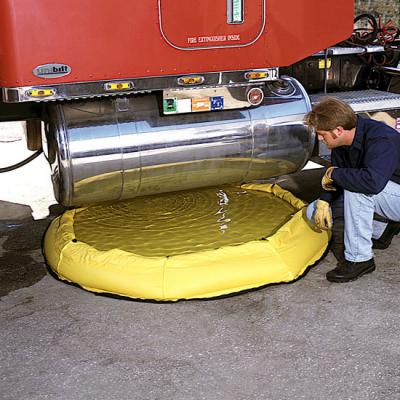In the world of backyard relaxation and emergency preparedness, emergency pop-up pools have gained considerable attention. These portable, inflatable pools offer a quick and convenient solution for cooling off or addressing water emergencies. But what exactly are these pools, and how do they function? Let’s dive into the details.
Understanding Emergency Pop-Up Pools
Defining Pop-Up Pools
Emergency pop-up pools are a form of temporary pool that can be easily set up and taken down. Unlike traditional in-ground or above-ground pools, these pools are designed for rapid deployment. They are typically made of durable materials like PVC and can be inflated or assembled quickly to provide a water-holding structure.
Purpose and Uses
Originally designed for emergency situations, these pools have found a broader application. They are used in scenarios like firefighting, flood management, and even as temporary water storage solutions. Recently, they have also become popular among homeowners as a quick way to enjoy a pool without the permanence or cost of a traditional setup.

Types of Emergency Pop-Up Pools
There are several varieties of emergency pop-up pools available on the market, each catering to different needs.
Inflatable Pools
Inflatable pools are the most common type of pop-up pool. They are lightweight and easy to transport, making them ideal for both emergency and recreational use. They can be inflated using a manual or electric pump and are available in various sizes, from small kiddie pools to larger family-sized options.
Frame Pools
Frame pools offer a more robust structure compared to their inflatable counterparts. They consist of a metal or plastic frame that supports the pool liner. Although they require a bit more time to set up, frame pools provide greater stability and can hold more water, making them suitable for more extensive emergency applications.
Hybrid Pools
Hybrid pools combine elements of both inflatable and frame pools. They feature inflatable sides with a supportive frame, offering a balance of ease of setup and structural integrity. These pools are versatile and can be used in both emergency situations and leisurely backyard settings.
How Do Emergency Pop-Up Pools Work?
The functionality of emergency pop-up pools is simple yet effective. Here’s how they operate:
Setup Process
- Site Selection: Choose a flat, stable location free of sharp objects or debris that could puncture the pool.
- Inflation/Assembly: Depending on the type of pool, either inflate the structure or assemble the frame. This process usually takes a few minutes to an hour, depending on the size and type of pool.
- Filling: Once set up, fill the pool with water. For emergency use, water can be sourced from nearby bodies of water or fire hydrants, if necessary. For recreational use, a garden hose will suffice.
Maintenance and Care
To ensure the longevity of your emergency pop-up pool, regular maintenance is essential. Keep the water clean by using a pool cover when not in use and adding appropriate pool chemicals to prevent algae growth. Regularly check for leaks or punctures and patch them promptly to maintain the pool’s functionality.
Storage
When the pool is not in use, it should be drained, cleaned, and stored in a dry, cool place. Proper storage prevents damage from prolonged exposure to the elements and extends the pool’s lifespan.

Advantages of Emergency Pop-Up Pools
Versatility
One of the most significant benefits of emergency pop-up pools is their versatility. They can be used in a variety of scenarios, from emergency water storage during droughts to providing a fun, temporary swimming option in the backyard.
Cost-Effective
Compared to permanent pool installations, pop-up pools are far more affordable. They offer a budget-friendly alternative for those who want to enjoy the benefits of a pool without the high costs associated with permanent structures.
Portability
The portability of pop-up pools cannot be overstated. They can be easily transported and set up wherever needed, making them an excellent choice for those who may relocate frequently or have limited yard space.
Limitations and Considerations
While emergency pop-up pools offer numerous benefits, there are some limitations to consider.
Limited Lifespan
Pop-up pools, especially inflatable models, may not last as long as traditional pools. They are more susceptible to punctures and wear over time, requiring careful handling and maintenance.
Capacity Constraints
The size and water capacity of pop-up pools are limited compared to permanent pools. This may restrict their use for larger groups or in situations where significant water storage is required.
Stability Concerns
While frame and hybrid pools offer more stability than inflatable ones, they are generally not as stable as permanent pools. Care should be taken to ensure the ground is level and that the pool is not overfilled.
Conclusion
Emergency pop-up pools are a practical and versatile solution for both emergency preparedness and recreational enjoyment. Their ease of use, affordability, and portability make them an attractive option for many homeowners and emergency services alike. By understanding their operation and considering their limitations, you can make an informed decision on whether a pop-up pool is the right choice for your needs.
Incorporating an emergency pop-up pool into your home or emergency plan can provide peace of mind and an enjoyable way to beat the heat. Whether you need a quick cooling-off spot or a temporary water storage solution, these pools offer a reliable and efficient answer.
Shop Now for Emergency Pop-Up Pools at Absorbents Online!
Ready to enhance your backyard or prepare for emergencies? Explore our wide selection of emergency pop-up pools at Absorbents Online! With various types and sizes available, you can find the perfect solution for your needs. Don’t miss out on the opportunity to enjoy the versatility and convenience of these pools. Visit us today and make your purchase to ensure you’re ready for any situation!